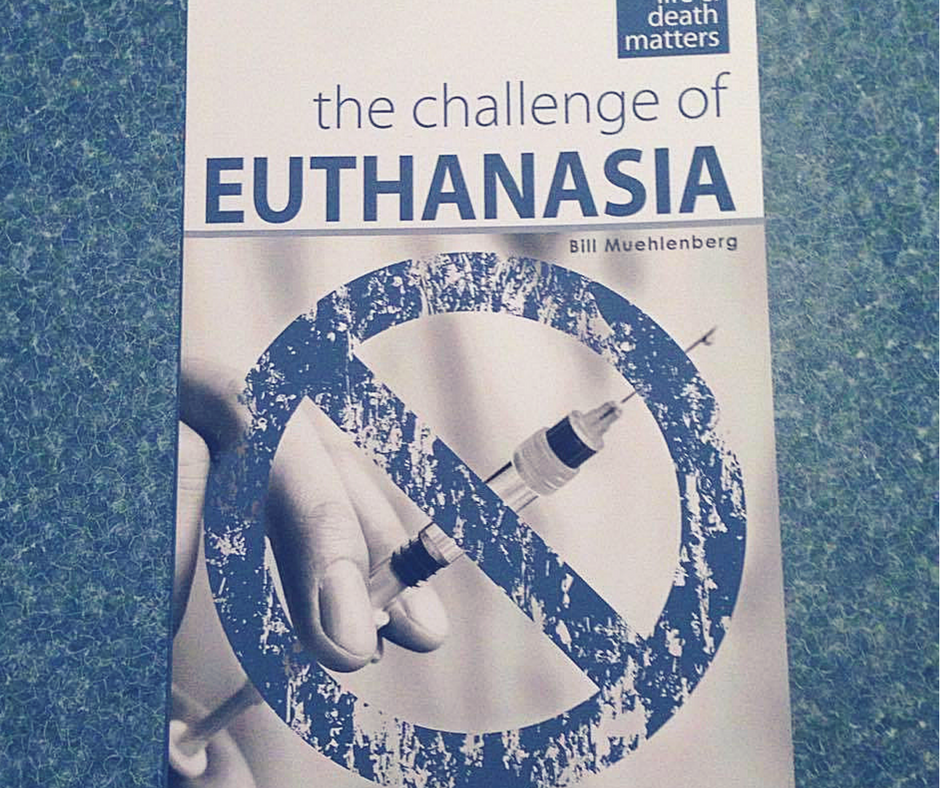Crossing the Threshold
Kelly’s piece is a lengthy and articulate warning about how we must avoid legalising euthanasia, since that will spell the end to a compassionate society. His entire article is well worth reading, but let me tempt you here a bit by sharing some of it. He begins:
If you love your parents, respect your children, care for your society and think compassionately about your world then it is time to open your heart and brain to what happens when a jurisdiction legalises killing or, as it is called, euthanasia. The justification for euthanasia lies in human rights, individual autonomy and relieving pain — all worthy ideas, and that may prompt the question: why then is euthanasia still opposed by most nations, most medical professional bodies around the world and the Australian Medical Association? The reason is not hard to find. It is because crossing the threshold to euthanasia is the ultimate step in medical, moral and social terms. A polity is never the same afterwards and a society is never the same. It changes forever the doctor-patient bond. It is because, in brutal but honest terms, more people will be put at risk by the legislation than will be granted relief as beneficiaries.
Love in the Context of Death
He looks at how the slippery slope has been in action in countries that have already legalised euthanasia, despite all their assurances of safeguards and the like. He then looks at the real issue here: the need for more emphasis on palliative care:
Palliative Care Australia chief executive Liz Callaghan tells Inquirer: “The practice of palliative care does not include euthanasia or physician-assisted suicide, and palliative care does not intend to hasten or postpone death. PCA believes the Australian government needs to increase access to palliative care. “Currently 70 per cent of Australians want to die at home but only 14 per cent do. We believe more needs to be done to ensure that this can happen. Access to integrated, comprehensive support and pain/symptom management is often inadequate, inequitable or may not meet patient needs.” Callaghan says evidence is that pain management improved from 2011 to last year based on data collection from 115 specialist palliative care services looking after 20,000 patients needing pain management. She says PCA believes more needs to be done to ensure people are better educated about their end of life care choices and palliative care. The PCA believes any request for euthanasia requires “a respectful and compassionate -response”, with Callaghan saying euthanasia is an issue for parliaments. It is ironic this week that more evidence has emerged about the shocking impact of suicide in this country, particularly for Australians aged in the 15 to 44 age group. How, pray, does legalising euthanasia help the campaign against suicide? The most bizarre notion this week was the suggestion that legalising euthanasia may lower the suicide rate. In many ways this entire debate is about how to interpret love and care in the context of death. Hug the person you love. But realise this is also about deciding the degree of discretion doctors have dealing with death. It may be good for a doctor to follow a patient’s wish for a lethal injection but that must be assessed against the total social impact of a regime that allows life to be terminated. If we proceed then life will change, there will be a “slippery slope”, your relationship with your doctor will be different, the vulnerable will have reason to feel uneasy, the push to make euthanasia a right will be inevitable, the frail will feel obliged to volunteer and our values as a community will shift more quickly than you appreciate.
The Challenge of Euthanasia
My own book,
The Challenge of Euthanasia also looks at these issues in some detail. With well over 200 footnotes, it is a comprehensive and well-documented examination of all the issues involved in the euthanasia debate. Like my earlier books on homosexuality and abortion, this volume is divided in two parts: the first half looks at the social, medical, scientific and moral concerns, while the second half examines the biblical and theological aspects. Thus both religious and non-religious folks should find this book of benefit.
10 Objections to Euthanasia
The first half begins by carefully assessing the terminology and definitions involved, and then deals with ten major objections to legalised euthanasia, or physician-assisted suicide. These are: One. The doctor-patient relationship is weakened Two. The right to die implies a duty to kill Three. The most vulnerable will be at risk Four. Legal euthanasia sends out the wrong message Five. Autonomy, freedom of choice, and self-determination Six. “Safeguards” and the slippery slope Seven. Hard cases make for bad law Eight. Faulty diagnoses and prognoses Nine. Palliative care Ten. A faulty understanding of compassion I conclude the first section of my book with the words of ethicist Gilbert Meilaender:
Our task is therefore not to abandon those who suffer but to “maximize care” for them as they live out their own life’s story. We ought “always to care, never to kill.” And it has, in fact, been precisely our deep commitment not to abandon those who suffer that has, in large measure, been a powerful motive force in the development of modern medicine. Our continued task is not to eliminate sufferers but to find better ways of dealing with their suffering.
I encourage all of you to read the helpful article by Paul Kelly. And if you require more information, data, statistics, and arguments, you might consider grabbing a copy of my new book.
To order your copy of Bill's book, click here then follow the links in the sidebar to order from Amazon or Kooyong books. I highly recommend it! [- Ed] www.theaustralian.com.au/opinion/columnists/paul-kelly/legalise-euthanasia-and-compassionate-society-dies-too/news-story/edac86177f0480632d02da83a2225c6d

